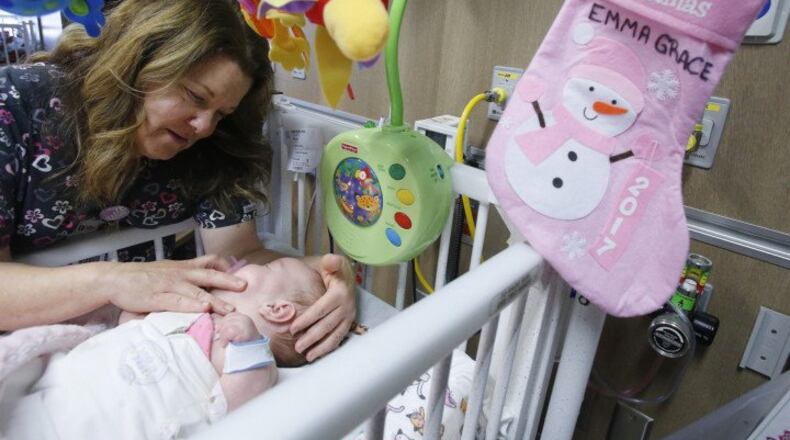MORE: Urgent care for children opens in Huber Heights
A pregnancy group along this model is already having success in Dayton. CenteringPregnancy, an evidence-based pregnancy peer group program, has been holding meetings at Five Rivers Health Centers locations at Miami Valley Hospital’s campus and recently started at the Five Rivers office at the former Good Samaritan Hospital site. Women in CenteringPregnancy are 33 percent less likely to have a preterm baby, officials said.
Prematurity accounted for 78 percent of black infant deaths in 2017 compared to 64 percent of white infant deaths, according to Ohio Department of Health.
While these types of groups already exist in some Ohio communities, the Ohio Department of Health is looking for a contractor to develop the curriculum for an Ohio-specific group prenatal care model for support during pregnancy and for the first 12 months after delivery to help with the stress of caring for a newborn.
“Providing women the support and community of a group prenatal care model is an innovative approach that we believe can reduce prematurity, including racial disparities in prematurity, and we hope to be able to quickly share any ideas that show promise,” Ohio Department of Health Director Lance Himes said in a statement.
MORE: What a Dayton group hopes to do with the area near the closed Good Samaritan Hospital
Prenatal care has traditionally consisted of a pregnant woman’s one-on-one visits with a clinical provider throughout her pregnancy. The “group prenatal care” approach that ODH will explore is a model in which several women with similar due dates come together for not just health screenings but also social support.
Evidence suggests that patients who have or develop strong personal support networks in this manner have better prenatal knowledge, feel more ready for labor and delivery, are more satisfied with care, and initiate breastfeeding more often, according to the American College of Obstetricians and Gynecologists.
About the Author
